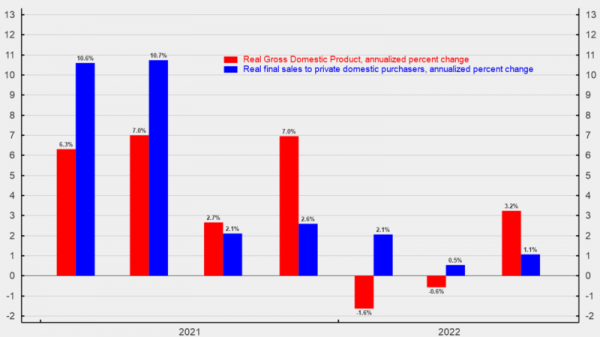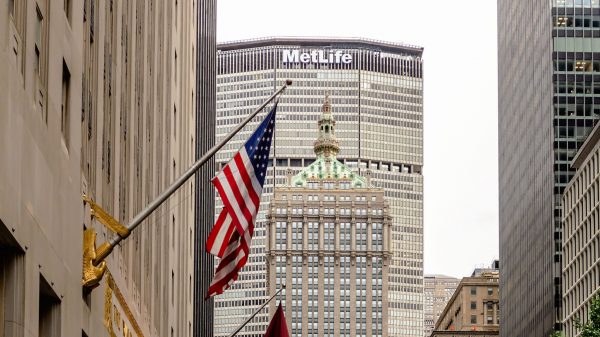
When you think about “voter suppression,” you probably think about the kinds of restrictions that disenfranchised Black voters who lived under Jim Crow. Maybe you think about ID laws or sparsely staffed voting locations with lousy technology, open at inconvenient hours. But I’d like to turn your attention to a different kind of “voter suppression,” and one that progressives especially love, even though it’s a bipartisan indulgence: suppressing the votes people cast with their dollars and cents. Every dollar is a vote in a commercial society, and every purchase casts ballots for how people should use their time, talents, and treasure. The unwashed masses have an annoying tendency to vote for the wrong things. Instead of voting for what progressives believe they should want, they cast their dollar-ballots at ugly places (Walmart and Dollar General) for ugly things (adjustable mesh caps and soft drinks). Wouldn’t the world be a happier, lovelier place if we replaced the patterns that emerge when entrepreneurs and capitalists hustle to serve the hoi polloi? Shouldn’t we (some argue) replace the ugly, unplanned messes modern capitalism makes with beautiful plans developed by beautiful minds?
There are a lot of examples of totally acceptable commercial voter suppression. The anti-chain movement in its various incarnations sought to suppress customers’ dollar votes for the financial benefit of independent retailers, and the aesthetic benefit of outsiders who want to maintain the “character of the neighborhood.” There was a vigorous anti-chain movement before World War II, with demagogues claiming chains were threats to independence and playing on people’s fear of outsiders. The anti-Walmart movement picked up steam in the early 2000s, and classroom discussions about it during my first semester teaching at Rhodes College actually inspired a lot of my research.
Dollar store chains, which serve primarily low-income communities, have taken a lot of heat in recent years. Incumbent retailers don’t like how stores like Dollar General are “stealing their customers.” Observers and activists find them aesthetically and socially unappealing. Anti-chain movements cloak themselves in nice-sounding rhetoric, but they are fundamentally efforts to suppress people’s commercial autonomy because special interests, observers, and activists don’t like the results. And as demagogues are wont to do, they are able to whip up resentment and gain support even among the people their demagoguery hurts by making impassioned, plausible-sounding cases that Walmart, Dollar General, or McDonald’s caused their poverty and distress.
Housing regulation is another kind of commercial voter suppression. Consider what happens when people rally to oppose new housing developments (you can probably find more than one example not far from you with a quick search). Efforts to restrict development or to require that housing construction go through a lengthy approval process are efforts, once again, to suppress the dollar-votes of the people who would occupy the new housing.
Housing restrictionism is hard to fight for several reasons. First, it’s easy to build a coalition of your neighbors to fend off invasion. Second, housing developers don’t get a lot of sympathy in the public eye, because new housing developments usually involve a lot more money than most of us are used to thinking about in our day-to-day affairs. Third, the prospective renters or owners who would, at some point in the future, occupy the new units don’t have a say in the political choice (they “vote” indirectly through the resources the developer devotes to getting his project approved). Hence, getting more new housing is more politically difficult than it needs to be.
One reason for this is that everyone wants a say in everything that happens. This sounds good, at least superficially, but it brings to mind a passage from Paul Heyne’s excellent book Are Economists Basically Immoral? (which you can download for $0). In it, he considers a hypothetical firm called International Conglomerate that makes “gizmoes” and opens a “sweatshop” in Malaysia:
As a baptized and confirmed economist I would say that if the Malaysian workers know what the risks are, then IC is not behaving unfairly to anyone. It is providing gizmoes to people who value them, providing profits to the shareholders of IC, and providing income to the Malaysian workers; everyone wins, or at least everyone with the right to be consulted.
We should ask whether we actually have a right to be consulted before expecting to be consulted. There are plausible externality-based arguments for preserving community character and whatnot, but there are also plausible externality-based arguments for being open to housing innovation and important questions about whether review and approval requirements won’t create more problems than they solve by encroaching on property rights.
In his brilliant book Knowledge and Decisions, Thomas Sowell explains how prices and social processes transmit valuable knowledge about incremental trade-offs. He notes that the use of force literally eliminates knowledge from the social process. Forsaking the market, in other words, suppresses consumers’ and producers’ votes to satisfy their presumed betters. If anyone in a transaction has a right to be consulted, however, it’s the consumers and producers who stand to lose the most when their votes are preempted.
Suppressing people’s votes in the marketplace for the benefit of those who think themselves entitled to a comfortable life at another’s expense, or for those who really know what is good for other people, does not help the suppressed voters. It insults them. Importantly, it impoverishes them (and the rest of us) by preventing prices from doing the work they need to do: transmit the knowledge people need to choose wisely. If we’re serious about listening to the least of these among us, we should let their money speak a little louder.

























